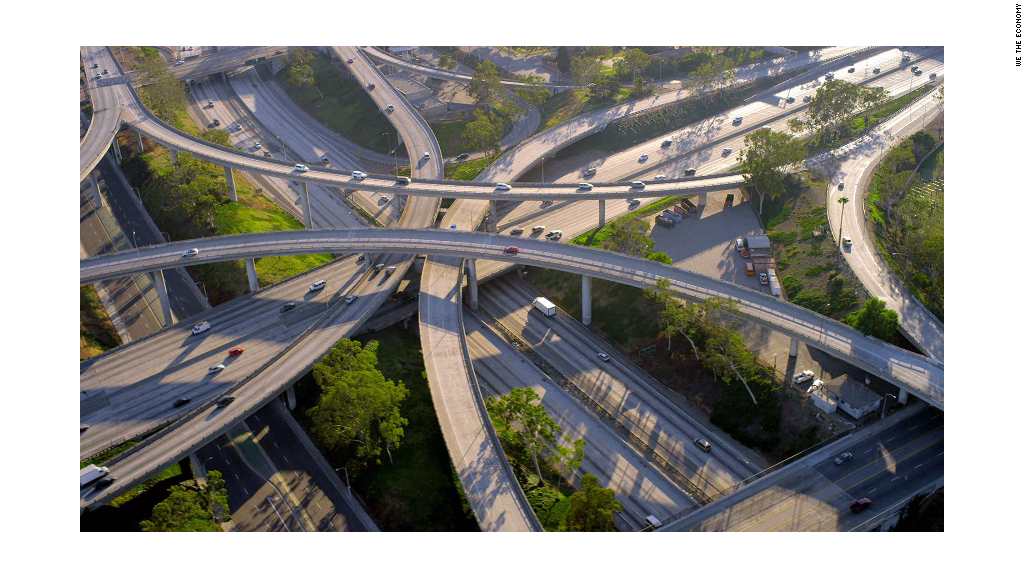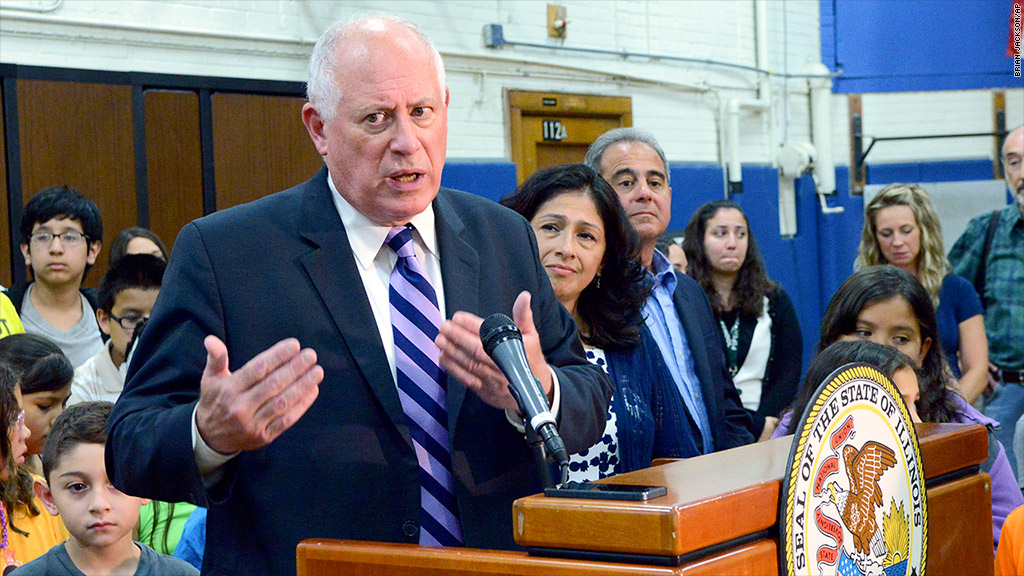
Should millionaires pay extra in taxes? It's a question that many states have asked. The latest is Illinois.
Prairie State voters on Tuesday will be asked whether they think the state's constitution should be changed to impose an additional 3% tax on income over $1 million. Revenue from the ballot measure would help fund schools.
The vote is non-binding. It's simply a measure of public support for the idea. So even if it passes, it's unlikely that the state's millionaires will be shelling out more anytime soon.
Some observers call the measure catnip to entice Democrats to vote in the midterm elections.
But Illinois' finances are also in bad shape.
And its fiscal woes could worsen in January, when the state's single 5% individual income tax rate is scheduled to drop to 3.75% and the corporate income tax rate is set to fall as well.
"Either we'll need to raise more revenue or cut spending," said David Merriman, a professor of public policy at the University of Illinois at Chicago.

Other states, of course, considered or enacted higher taxes on millionaires in the past decade.
California in 2012 approved a 3% additional tax on income over $1 million that will be in effect through 2018. Revenue raised is going largely to schools.
In the wake of the 2008 financial crisis, Connecticut, New Jersey and Maryland temporarily imposed a higher rate on high-income households -- both above the $1 million threshold and below.
Related: Voters to decide on raising the minimum wage
In 2010, Bill Gates Sr. backed a ballot measure that would have required Washington state, which has no individual income tax, to tax adjusted gross income over $400,000 for couples ($200,000 for singles) at 5% and income over $1 million at 9%.
Revenue from the Washington measure would have paid for middle class tax relief as well as education and health services. But it was defeated at the polls.
Some New Jersey Democrats, meanwhile, have also tried and failed to raise the tax rate on those making millions -- sometimes to offer property tax relief and other times to help the state make its pension payments. This year they proposed a 10.75% rate on income over $1 million, which is what the rate was in 2009. The top rate currently is 8.97% on income over $500,000.
At the federal level, Democrats have repeatedly floated different types of millionaire taxes.
One that's gotten the most attention is President Obama's proposed "Buffett Rule" or "Fair Share Tax." That proposal called for those making more than $1 million to pay at least 30% of their income, after charitable contributions, in federal taxes.
The most recent incarnation of that idea came from Senator Elizabeth Warren, who proposed that the 30% minimum be imposed and used to pay for a program to help student loan borrowers buried in debt.
